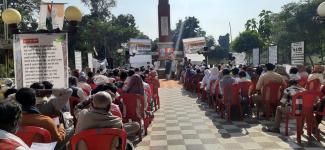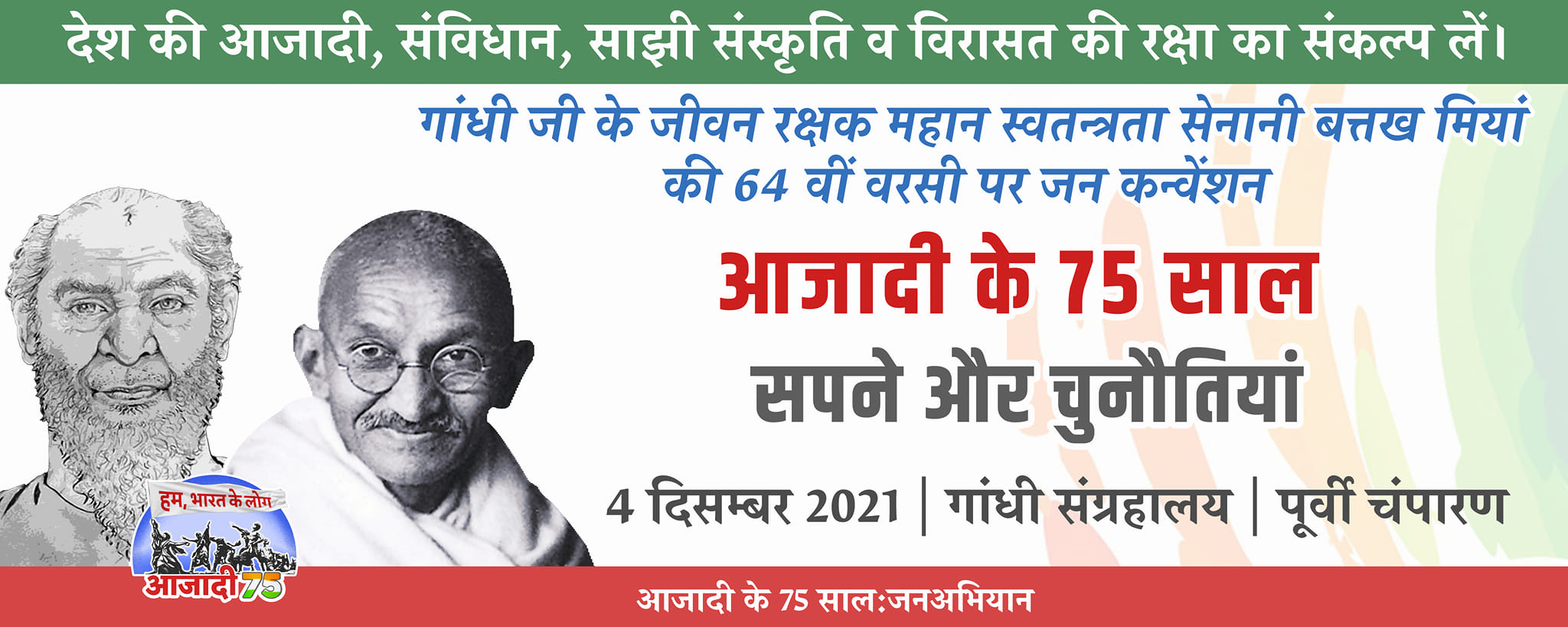
Today is the 64th death anniversary of Battakh Miyan, the freedom fighter from Champaran who is believed to have saved Gandhiji's life by foiling the indigo planter lobby's conspiracy to poison Gandhi to death during his historic 1917 Champaran visit. Battakh Miyan was a young cook then at the planter's bungalow and for his act of defiance he incurred the wrath of the planter lobby and the colonial rulers, lost his job and spent the rest of his life in colonial India facing persecution and penury.
It was Rajendra Prasad, India's first President, who rediscovered Battakh Miyan during his visit to Motihari in 1950 and ordered his rehabilitation by arranging land and secure livelihood for his family. Years after Battakh Miyan's death, Bihar government decided to develop his tomb. A library was built in his name. The entrance to Motihari Station was also named Battakh Miyan Gate.

Today even as the Modi government talks of commemorating the unsung heroes of India's freedom movement, Battakh Miyan continues to remain unsung. The tomb remains a neglected monument, the library has metamorphosed into a CRPF camp turned EVM godown, and the name of Battakh Miyan has been removed from the station gate.
Perhaps this is only to be expected from the high priests of an ideology who consider Godse, Gandhi's killer, to be the greatest patriot, and Savarkar, the notorious mercy-seeker, one of the early exponents of two-nation theory and alleged mastermind behind Gandhi assassination, the greatest 'unsung hero' of India's freedom movement!
But the legacy of Battakh Miyan still has strong resonance in Motihari. As part of the 'we, the people of India' people's campaign to commemorate the 75th anniversary of India's freedom movement, today we visited his tomb at Azgari village in Banjaria block near Motihari Town to pay tribute to this unsung freedom fighter. A convention was held at the Gandhi Sangrahalaya campus where heirs of Battakh Miyan were felicitated.
It was great to listen to nonagenarian Gandhian Brajkishore Singh and octogenarian socialist Professor Nasim Ahmad at the convention along with younger activists and local citizens who were unanimous in their defence of the legacy of the freedom movement, the vision of the Constitution and the quest of agrarian India for justice, from the days of Champaran Satyagraha to the ongoing farmers' movement.
The Freedom75 campaign is becoming a lively arena of struggle - of remembrance versus oblivion, historical truth versus falsification of history, harmony versus hate, the determination of freedom against the aggression of fascism.
Charu Bhawan, U-90, Shakarpur, Delhi 110092
Phone: +91-11-42785864 | Fax:+91-11-42785864 | +91 9717274961
E-mail: info@cpiml.org







